A Ton Of Facts That’ll Teach You Something New Today
In a world teeming with the extraordinary, it's often the bizarre truths that captivate our imaginations. From the mysteries of nature to the peculiarities of human behavior, these unbelievable but true facts challenge our understanding and invite us to explore the unexpected.
Whether it's plants emitting invisible light or ancient remedies against the plague, these stories remind us of the curious wonders that lurk just beyond the surface of our everyday lives.
Human Bodies: High Water Content Explained

The human body is composed of approximately 60% water, a fact that underscores the vital role of hydration in maintaining bodily functions. This high water content is essential for regulating temperature, facilitating cellular processes, and aiding in waste removal.
Despite our seemingly solid form, humans are essentially walking vessels of water, a testament to the intricate balance of elements that sustain life.
The Controversial History of 7up

The popular soft drink 7up has a controversial past that many might find surprising. Originally created in 1929, 7up contained lithium, a mood-stabilizing substance, which contributed to its early popularity.
It wasn't until 1948 that lithium was removed from the formula due to health concerns. This intriguing history adds a layer of complexity to what is now a seemingly innocent beverage enjoyed by millions around the world.
The Influence of Batman Costumes on Children's Behavior

Parents struggling to motivate their children might want to consider dressing them as Batman. Studies suggest that kids are more inclined to complete tasks when donning the iconic superhero costume.
By embodying the persona of Gotham's protector, children approach chores with enthusiasm, transforming mundane activities into heroic missions. This playful strategy harnesses the power of imagination, making household responsibilities a bit more exciting for young ones.
Perfume as a Historical Plague Remedy

In times of plague, people once believed that disease spread through the air and attempted to combat it with perfume. By inhaling sweet scents or burning incense, they hoped to ward off sickness.
Although we now understand the complexities of disease transmission, this historical practice highlights the human desire to find protective measures, however misguided, against the invisible threats of illness.
Jeff Bezos' Staggering Wealth Comparison

Jeff Bezos, founder of Amazon, is renowned for his immense wealth. To put it into perspective, he makes approximately $2,500 every second, a sum that surpasses what many individuals earn in a week.
This staggering financial comparison not only underscores the vast economic disparities in the world but also invites reflection on the impact of wealth accumulation and its implications for society at large.
Prehistoric Giant Mushrooms

Imagine a world where mushrooms towered over landscapes like skyscrapers. Approximately 400 million years ago, giant mushrooms, reaching heights of up to 8 meters, dominated the earth. These prehistoric fungi remind us of the planet's dynamic history and the incredible diversity of life forms that have existed.
The disappearance of these towering mushrooms remains a mystery, leaving us to ponder the ever-changing nature of life on Earth.
Quirky Punishments for Thai Police Officers

In Thailand, police officers who commit minor infractions face a rather unusual form of punishment: wearing Hello Kitty armbands. This quirky disciplinary measure is intended to instill a sense of shame and embarrassment, serving as a reminder of their misconduct.
While the logic behind this punishment may be puzzling, it certainly adds a touch of humor and creativity to the otherwise serious realm of law enforcement.
Voting from Space: Astronauts' Political Participation

Even in the vastness of space, astronauts remain engaged in earthly affairs by voting from orbit. Through secure electronic systems, they exercise their democratic rights from the International Space Station.
This technological achievement highlights humanity's commitment to civic responsibility, ensuring that even those exploring the final frontier can participate in shaping the future of their home planet.
Garlic's Unexpected Benefits for Body Odor
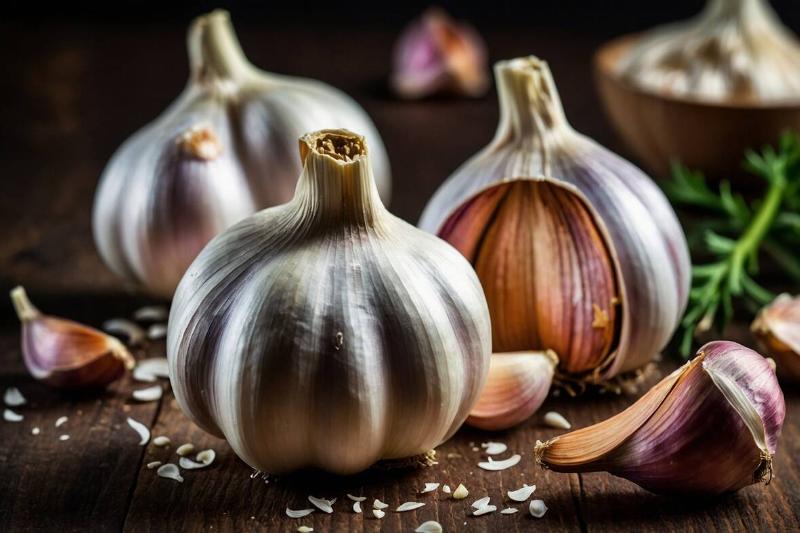
Contrary to what one might expect, garlic can actually help improve body odor. While consuming garlic may lead to temporary bad breath, its long-term effects include enhancing the smell of one's natural body scent.
This curious fact may explain why garlic is a staple in many cuisines, and it offers a surprising solution for those looking to manage body odor naturally.
Plants Emit Invisible Light Rays

One of the lesser-known wonders of nature is the fact that plants emit invisible light rays. During the process of photosynthesis, plants release a type of light that is invisible to the human eye.
This phenomenon is part of a broader electromagnetic spectrum that includes ultraviolet rays and other forms of light we cannot see. It's a fascinating reminder of the hidden activities in the natural world that escape our everyday perception.
Overwhelming Variety of Apple Types

Apples, a staple fruit worldwide, boast an astonishing diversity with approximately 7,500 varieties. If someone were to try a new apple variety each day, it would take over 20 years to sample them all.
This abundance reflects the rich agricultural history and global cultivation of apples, showcasing the incredible adaptability and versatility of this beloved fruit across different climates and cultures.
A Dog as a Legal Witness in France

In a remarkable turn of events, a dog named Scooby took the witness stand in a French murder trial. Believed to have been present during a crime, Scooby's behavior was observed in court to determine his reactions to the suspects.
This unusual legal scenario highlights the unique bond between humans and animals, and the potential role of pets in providing insights during judicial proceedings.
Pigeons' Surprising Medical Diagnostic Skills

Pigeons, often underestimated for their intelligence, have demonstrated the ability to diagnose medical conditions. With training, these birds can identify breast cancer in mammograms with accuracy comparable to human doctors.
This surprising skill challenges our assumptions about animal intelligence and opens up possibilities for innovative approaches in medical diagnostics, potentially offering cost-effective solutions in healthcare.
Grapes in Microwaves: A Potential Fire Hazard

Microwaving grapes can lead to an unexpected fire hazard. When heated, grapes can generate plasma, a state of matter that produces sparks and intense heat.
This phenomenon serves as a cautionary tale about the curious interactions between everyday objects and technology, reminding us to approach seemingly innocuous experiments with caution and an understanding of the underlying scientific principles.
Strict Chewing Gum Laws in Singapore

Singapore's stringent chewing gum laws reflect the city's commitment to cleanliness and order. The sale and import of chewing gum are heavily regulated, with violators facing substantial fines or even imprisonment.
This policy, aimed at reducing litter and maintaining public spaces, exemplifies Singapore's unique approach to governance and the lengths to which it will go to preserve its reputation as one of the world's cleanest cities.
The Bias in Coin Toss Outcomes

The classic coin toss, often thought to be a 50-50 gamble, is not as fair as it appears. In reality, the outcome of a coin toss is slightly biased, with the side facing up initially having a 51% chance of winning.
This subtle advantage challenges our perception of randomness and fairness, revealing that even the simplest games of chance can be influenced by minute details.
Frequency of Face Touching

On average, people touch their faces about 15.7 times per hour, a habit often performed unconsciously. This frequent contact poses hygiene challenges, as it can transfer germs and bacteria from surfaces to our mouths, noses, and eyes.
Understanding this behavior is crucial for improving personal hygiene practices and reducing the risk of infections, especially in contexts where cleanliness is paramount.
Surprising Cleanliness of Toilets Versus Phones

In a surprising twist, research has shown that our mobile phones are often dirtier than toilet seats. While toilets are regularly cleaned and sanitized, our phones accumulate bacteria from frequent handling and exposure to various surfaces.
This revelation serves as a wake-up call to prioritize the cleanliness of our most-used gadgets, urging us to adopt better hygiene practices in our tech-driven lives.
Coca-Cola's Milestone in Space Exploration

Coca-Cola achieved a unique milestone by becoming the first soda consumed in space. This momentous occasion marked a triumph for both the brand and the field of space exploration, showcasing the adaptability of consumer products to extraterrestrial environments.
The event also sparked a playful rivalry with Pepsi, highlighting the intersection of commercial interests and scientific achievement in the context of human spaceflight.
Bananas' Radioactive Properties
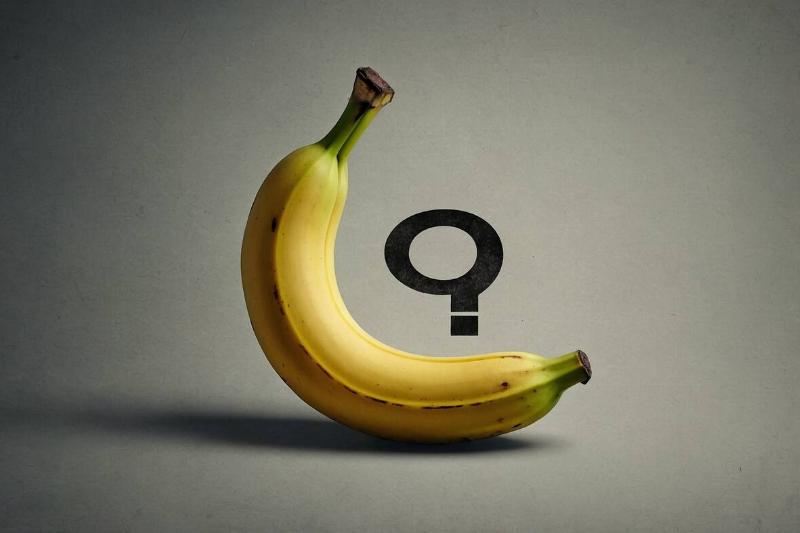
Bananas, a popular and nutritious fruit, contain a small amount of natural radioactivity due to their potassium content. While this fact might sound alarming, the radiation levels are harmless and pose no health risks.
This quirky characteristic adds to the banana's appeal and serves as a reminder of the fascinating ways in which nature incorporates elements of the periodic table into our everyday diets.
Height Variation Between Morning and Evening

Human height fluctuates throughout the day, with individuals being slightly taller in the morning than in the evening. This variation is attributed to the compression of spinal discs during daily activities and their re-expansion during sleep.
This phenomenon not only highlights the dynamic nature of our bodies but also offers a unique perspective on the interplay between rest, activity, and our physical form.
The Potential Extinction of Chocolate

The beloved treat of chocolate faces a potential threat of extinction due to climate change. Rising temperatures and shifting weather patterns could jeopardize cocoa production, leading to a future where chocolate becomes a rare luxury.
This alarming prospect underscores the broader impacts of environmental change on agriculture and food security, prompting urgent action to preserve the planet's biodiversity and cherished culinary traditions.
Historical Ban on Christmas Celebrations in the U.S.

Despite its current status as a beloved holiday, Christmas was once banned in parts of the United States. Influenced by Puritanical beliefs, early American settlers viewed the holiday's festive traditions as contrary to their religious values.
It wasn't until the 19th century that Christmas gained widespread acceptance, evolving into a cultural celebration that transcends religious boundaries and unites people in a spirit of joy and generosity.
Psychological Insights on Food Tasting Better When Made by Others

Food often tastes better when prepared by someone else, a phenomenon backed by psychological insights. The anticipation and novelty of experiencing a dish without knowing every step of its creation can enhance our enjoyment.
This effect highlights the role of perception, expectation, and social interaction in shaping our culinary experiences, offering a scientific explanation for why grandma's cooking always seems to hit the spot.
Cheese: The Most Stolen Item Globally

Cheese holds the dubious distinction of being the most stolen food item globally. Its popularity as a target for shoplifters is driven by its high value, demand, and ease of resale.
This surprising fact sheds light on the complexities of food theft and the clandestine networks that trade in seemingly mundane items, revealing the economic and social factors that contribute to this widespread phenomenon.
Charles Darwin's Contribution to Office Furniture

Renowned for his contributions to evolutionary biology, Charles Darwin also played a role in the evolution of office furniture. He is credited with inventing the first office chair on wheels, enabling greater mobility and efficiency in his study.
This little-known fact highlights Darwin's inventive spirit and penchant for practical solutions, extending his legacy beyond the realm of science into the everyday lives of modern professionals.
Bread as a Precursor to Erasers

Before the invention of rubber erasers, bread was commonly used to remove pencil marks. This innovative use of a staple food item highlights human ingenuity in solving everyday problems with available resources.
The eventual development of rubber erasers revolutionized writing and drawing, but the humble origins of this tool serve as a testament to the resourcefulness and adaptability of past generations.
Goldfish's Ability to Distinguish Classical Music
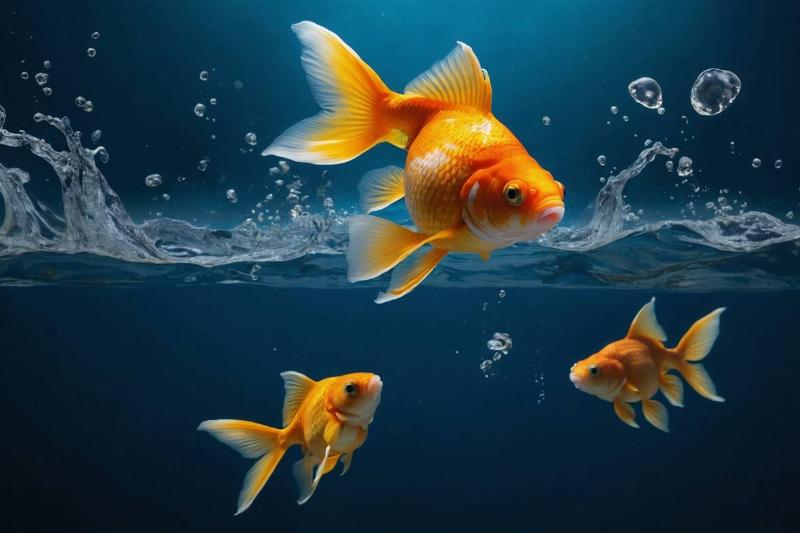
Goldfish, often regarded as simple creatures, possess the surprising ability to distinguish between different composers of classical music. Studies have shown that these aquatic pets can differentiate the works of Bach and Stravinsky, challenging our assumptions about animal intelligence.
This unexpected talent invites us to reconsider the cognitive capabilities of other species and the ways in which they perceive the world around them.
Pandas' Tactics for Attention

Pandas, known for their adorable antics, sometimes resort to faking pregnancies to gain attention and special treatment. This behavior, observed in captivity, highlights the complex social dynamics and intelligence of these endearing animals.
By mimicking pregnancy symptoms, pandas receive extra care and food, demonstrating their ability to manipulate their environment to their advantage in a charming display of nature's ingenuity.
Proliferation of Space Debris

The vast expanse of outer space is not immune to the accumulation of debris. Human activities have resulted in approximately 29,000 objects orbiting Earth, ranging from defunct satellites to fragments of discarded spacecraft.
This growing collection of space junk poses significant challenges to future space missions and underscores the need for sustainable practices in space exploration to preserve the integrity of our cosmic environment.
The Timeless Longevity of Honey
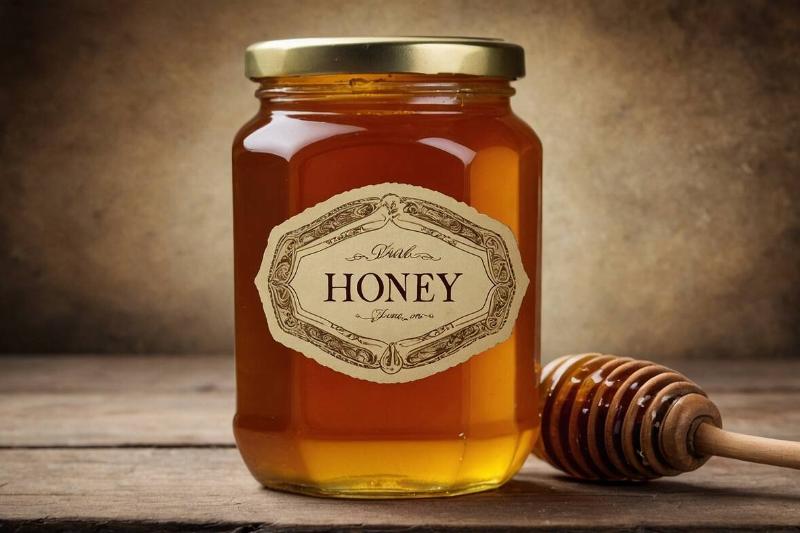
Honey is renowned for its seemingly eternal shelf life, a characteristic that has fascinated humans for millennia. This natural sweetener's ability to resist spoilage is due to its low moisture content and acidic pH, which inhibit the growth of microorganisms.
Honey's remarkable durability not only makes it a valuable culinary ingredient but also serves as a symbol of nature's wisdom and the enduring legacy of ancient beekeeping practices.
Cleopatra's Timeline in Historical Context

Cleopatra, the iconic Egyptian queen, lived closer in time to the invention of the iPhone than to the construction of the Great Pyramids.
This surprising chronological fact challenges our perception of history, highlighting the vast expanse of human civilization and the enduring impact of ancient cultures. It also serves as a reminder of the dynamic progression of time and the interconnectedness of past and present.
Black Pepper's Historical Significance
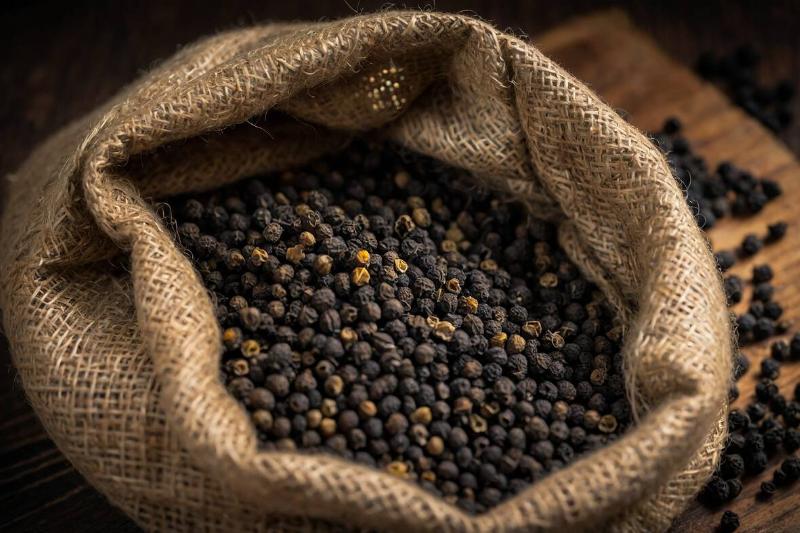
Once considered a luxury item, black pepper held great significance in medieval Europe. It was so valuable that it was used as currency, with peasants paying taxes and rent in peppercorns.
This historical importance underscores the spice's role in shaping trade routes and cultural exchanges, illustrating how culinary ingredients can influence economic and social dynamics across different eras and regions.
Jellyfish's High Water Composition

Jellyfish, ethereal creatures of the sea, are composed of approximately 98% water. This high water content makes them incredibly fragile and susceptible to evaporation, yet it also allows them to thrive in diverse marine environments.
The jellyfish's unique composition and resilience offer insights into the adaptability of life forms and the delicate balance of ecosystems within the Earth's oceans.
Salmon's Benefits for Hair Health
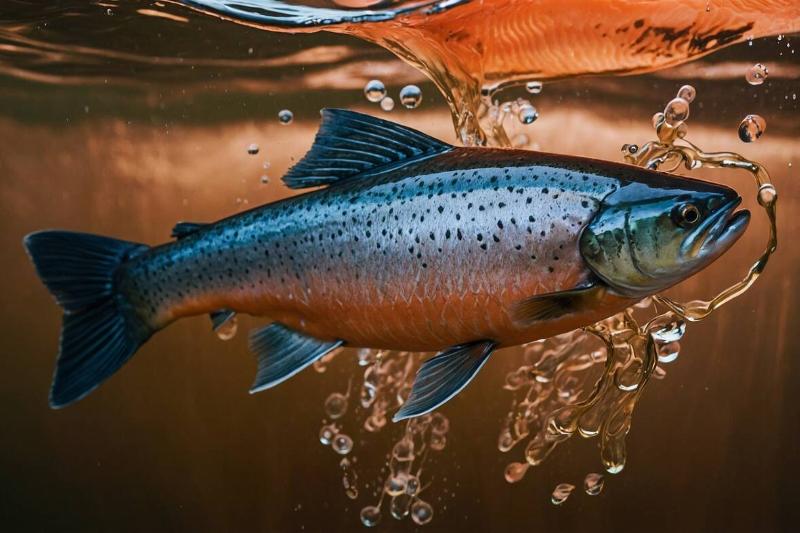
Salmon, a popular and nutritious fish, is known for its benefits to hair health. Rich in omega-3 fatty acids, salmon helps strengthen hair follicles, promote growth, and add shine.
This delicious seafood not only supports overall well-being but also enhances one's natural beauty, offering a tasty and effective solution for those seeking to improve their hair care routine.
Length of Greece's National Anthem

Greece's national anthem, 'Hymn to Liberty,' holds the distinction of being the longest national anthem in the world, with 158 verses. This epic composition reflects the nation's rich cultural heritage and historical struggles for freedom.
While typically only a few verses are sung during official events, the anthem's full length stands as a testament to Greece's enduring spirit and pride in its identity.
Low Readership of Academic Papers

Despite the immense effort and research poured into academic papers, studies reveal that approximately half remain unread by anyone other than their authors and editors. This statistic highlights the challenges faced by scholars in disseminating knowledge and the need for more effective communication strategies.
It also prompts reflection on the value of academic work and the importance of fostering a culture of curiosity and engagement with scholarly pursuits.
Running as a Life-Extending Activity

Running, a simple yet effective form of exercise, has been linked to increased longevity. Studies suggest that for every hour spent running, life expectancy may increase by up to seven hours.
This statistic underscores the profound impact of regular physical activity on health and well-being, encouraging individuals to incorporate exercise into their daily routines as a means of enhancing quality of life and promoting longevity.
Leonardo Da Vinci's Ambidextrous Talent

Leonardo Da Vinci, the quintessential Renaissance man, possessed the extraordinary ability to draw with one hand while writing with the other. This ambidextrous talent exemplifies his unparalleled genius and creativity, allowing him to explore multiple ideas simultaneously.
Da Vinci's remarkable skills continue to inspire admiration and curiosity, highlighting the boundless potential of the human mind and the enduring legacy of his contributions to art and science.
Pandas' Unconventional Sleeping Habits

Pandas, known for their charming demeanor, exhibit unconventional sleeping habits by resting wherever they please. Unlike many animals that have designated sleeping areas, pandas are content to nap in various locations, highlighting their laid-back nature.
This unique behavior, combined with their playful antics, endears pandas to people worldwide and underscores the diversity of adaptation strategies within the animal kingdom.
